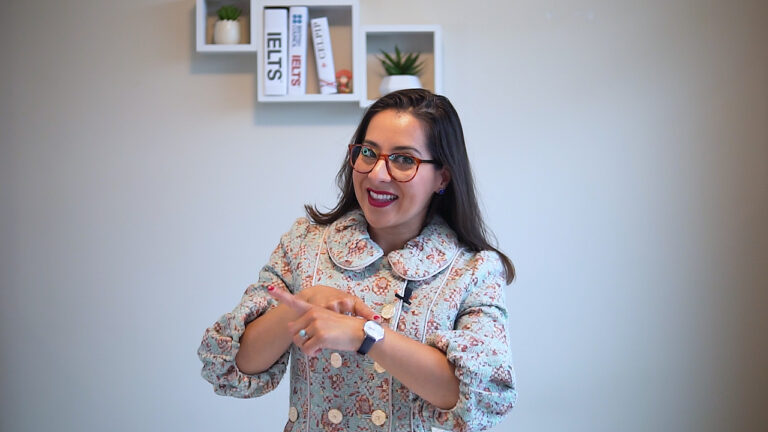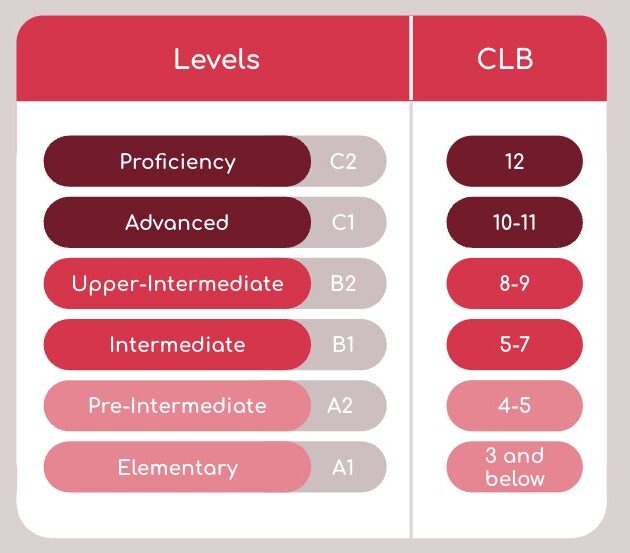“How can I improve my English?”
Improving your English has to be FUN! And one of the best ways to study is by listening to podcasts 🎧
Not only will you be listening to real-life conversations about a topic that interests you, you’ll learn new words and phrases, improve your grammar, AND you’ll even improve your pronunciation.
| How? By listening to a native speaker’s intonation and how they naturally stress or emphasize certain parts of a word or sentence. You’ll also hear how they connect words together…all sorts of fun and geeky stuff. |
But what matters is that you’ll eventually start speaking more like the people you’ve been hearing or listening to! Pretty cool, eh?
So get your notepad ready for a FREE English lesson👇
Active Listening vs. Passive Listening
First ☝️ I want you to set aside time to listen to an episode of one of my favourite podcasts from Dax Shepard’s ArmChair Expert. Not only is his voice so yummy, his vocabulary and pronunciation are amazing.
His guests are really interesting too, and in this particular interview, you’re going to learn TONS about cultural differences! Now whether you live in Canada or not, this episode will definitely be interesting to you since I’m sure you have friends or colleagues from all around the world.
| I want you to actively listen to this podcast instead of passively listening to it. |
What does that mean? It means you’ll want to sit down and pay attention. Really enjoy it!
Make it a game to find new words and expressions. Can you find at least 3 new words?
Vocabulary & Phrasal Verbs
| Tip |
- Split
- Zest
- Anecdotal
- Idiosyncrasy
- Stifled
- Inadaptable
- Rigid
- To gaze
- To lump
- To wrap up
- Dichotomy
- Euphemism
- Hierarchy
Collocations
- Build trust
- Make decisions
- Give feedback
- Give (someone) an impression
- Raise your hand
- Pay attention
Brain Snacks
Tips from this podcast for your IELTS or CELPIP exam
| This podcast even has some great tidbits and tips for your test Because maybe your culture is affecting how you give answers on your IELTS or CELPIP Writing or Speaking exam! How so? I’ve broken down some highlights as to why |
- Application 1st vs. Principle 1st Cultures (1h 12min): Listen to when they talk about how people from different countries share their ideas. Could the way you write in your first language be affecting how you write on your writing exam? Do you “Get to the point and stick to the point!” or do you “Striptease” 😆
- Perfect Example of Word Stress (1h 19min): Listen to how word stress can totally affect the meaning of what you want to say. The name of her book “No Rules Rules” changed in meaning just by stressing the wrong word! 🤦🏻♀️ Word stress is part of your speaking test assessment, so make sure you’re emphasizing the right part of the word and sentence.
- Implicit vs. Explicit Communication (40min): They talk about how some cultures communicate more indirectly than others, meaning their message is communicated between the lines. Americans and Canadians are much more explicit, but people from Japan or France, for example, are very implicit and much of what is expressed is “in the air”. For your test, never assume that the examiner knows what you’re thinking!! Always say what’s on your mind. They cannot assess you based on your ideas without you saying them, so write them down or say them!
Bonus Question. Fun Question!
Listen to when they talk about COCONUT CULTURES 🥥 vs. PEACH CULTURES! 🍑 (47h 30min)
Are you a COCONUT or a PEACH? I’m definitely a PEACH! 🙋🏻♀️

















